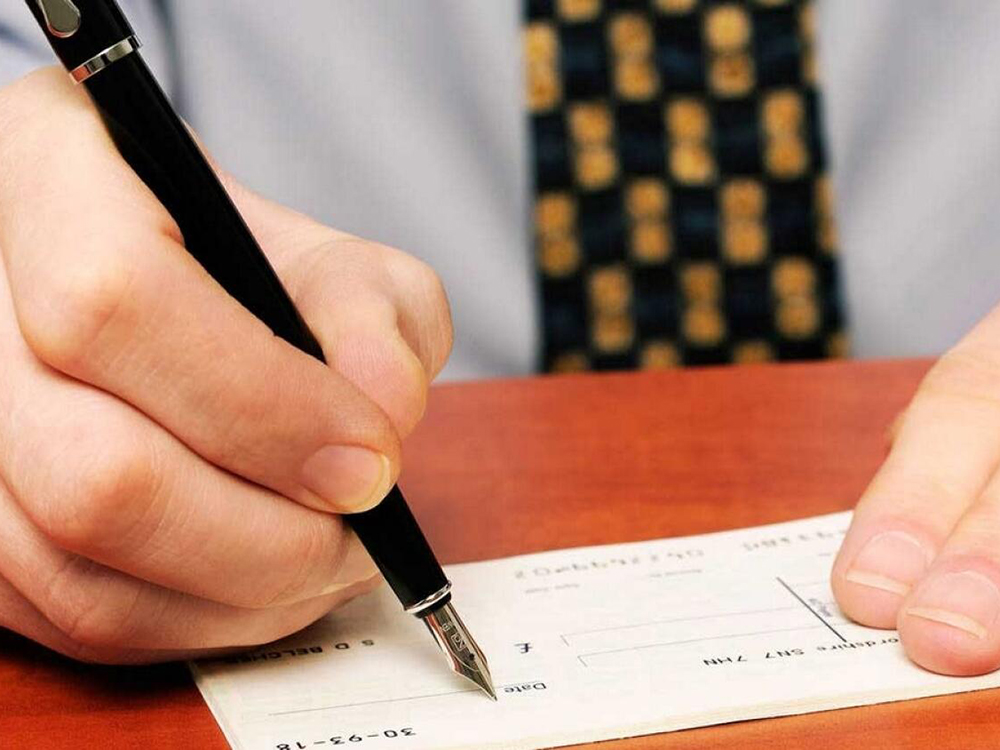
Cheque Bounce
Cheque Bounce Cases Lawyer in Indore
A cheque is an exchange bill drawn upon a delegated banker which is only payable on demand by the applicant. In a strict legal sense, the individual/ organisation issuing the cheque is named a ‘drawer’ and therefore the individual/ organisation in whose favour the cheque has been issued is named the ‘drawee’.
A cheque is said to be bounced when an unpaid cheque is returned by the bank, also referred to as dishonour of cheque. Cheque can bounce due to tons of reasons, as an example, due to insufficiency of funds in the account of the ‘drawer’ and lots of other reasons. The bank always issues a cheque return memo with the required reasons for non- payment when a cheque gets bounced (it might or might not be the primary instance of bouncing of the cheque). In India a cheque bounce is a criminal offence stipulated under Section 138 of the Negotiable Instruments Act, 1881. However, in case of a cheque dishonour, the aggrieved party can also file a civil suit along with the criminal complaint against the accused. It’s advisable to organize the cheque bounce complaint with the help/ assistance of an expert cheque bounce lawyer. The complaint must submit all the important/ useful evidences such as original cheque that was returned by the bank, the cheque return memo, demand notice sent against non-payment/ cheque bounce, receipts of legal notice and other relevant documents which will be used as evidence to support one’s legal standing that the accused is liable to pay the un-paid cheque’s amount with interest as deemed fit by the court for all the mental and physical trauma caused thanks to the court procedure. Once the whole trial is over and if the accused is found guilty, then he can be punished with a monetary penalty which can be double the cheque amount or be punished with imprisonment which may extend to two years or both.
The Negotiable Instruments Act of 1881 has been recently amended with a view to deal with the difficulty of undue delay in final resolution of cheque dishonour cases in order to provide relief to payees of dishonoured cheques and to discourage frivolous and unnecessary litigation which might economize and time. Further, the amendments have strengthened the credibility of cheques and helped trade and commerce generally by allowing lending institutions, including banks, to still extend financing to the productive sectors of the economy.
The Amendment Bill inserts Section 143-A within the Act of 1881, making provision for the payment by the drawer of the dishonoured cheque to the payee thereof of interim compensation of an amount not exceeding 20% of the worth of the instrument during the pendency of proceedings for the offence of dishonour under Section 138 of the Act (a) in a summary trial or a summons case, where the drawer pleads not guilty to the accusation made in the complaint; and (b) in the other case, upon framing of charge.
The said interim compensation got to be paid within a period of 60 days from the date on which the order thereto effect is formed. The interim compensation so recovered shall be deductible from the quantity of fine imposed under Section 138 by the Magistrate upon conviction of the drawer or any compensation directed to be paid under Section 357 of Code of Criminal Procedure, 1973. Section 138 of the Act of 1881 provides for imposition of a sentence of imprisonment not exceeding a period of two years or fine extending to twice the amount of the dishonoured cheque or even both. The said amount of interim compensation may also be recovered within the manner provided under Section 421 of Cr. P. C – by way of attachment and sale of any movable property of the drawer or a warrant to the Collector of the concerned district to recover an equivalent as arrears of land revenue from the movable or immovable property of the drawer. If the drawer of the cheque is acquitted, the Court shall direct the complainant to repay to the drawer the quantity of interim compensation, with interest at the bank rate as published by the Reserve Bank of India, prevalent at the start of the relevant year.
